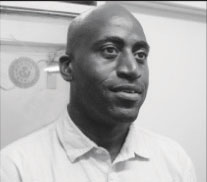
OUR mistakes and imperfections serve a useful purpose. They keep us humble and remind us of the need to continue working toward that perfection. Even when something seems flawless, if you know what to look for, you may still find a mistake or, in computer parlance, a bug.
Some mistakes have a detectable pattern which allows us to easily identify them, their origin and, hopefully, improve our processes to avoid repeating them. As someone who helps others by detecting, diagnosing and recommending fixes to problems, I can say it’s a skill honed over a long period of time and it requires continual effort to become reasonably adept.
The use of ICT helps avoid some problems but the underlying understanding of the process is what makes the difference in spotting and preventing problems. For example, last week’s article mistakenly referred to counts of schools whereas the cited figures were retrieved from a column of codes that unfortunately resembled the desired figures. Thankfully a mistake, however silly, did not destroy the overall point being made.
In the spirit of advancement, especially as the scholarly accomplishments of our students at the Common Entrance Exams are still being celebrated, I have other examples to share that highlight my own mistakes, at least so others can claim their mistakes and improve their own abilities.
We generally assess others by their grand accomplishments and overlook the struggles that fueled their rise beyond their difficult circumstances or limitations. Take a look at your own CV or resume! Does it reveal the low test scores that motivated you to succeed or the jobs you unsuccessfully applied for? No, they present the attractive aspects of our backgrounds but only represent a partial picture. If we wish to motivate or inspire others, such as the students mentioned above, we should do more.
While attending an academic conference in Gothenburg, Sweden, a particular researcher finished his presentation and then invited questions from the audience. When no question was asked, he immediately posed a few challenging questions from his informed perspective that seemed to question fundamental aspects of his own work. Fifteen-odd years later, I still fondly remember the purity, honesty and power of his own questions, which prove that avoiding a difficult conversation does not make it go away and ignoring one’s own mistakes does not eliminate them, either.
Back to the simple task of reading from lists of numbers or codes: what can we do to make it easier to read and understand? Quite a lot, for example:
Choosing fonts that help distinguish certain symbols, such as the letters ‘o’ and ‘l’ from the numbers zero and one,
Using a monospaced font for listing numbers, accounts, etc. and
Avoiding ambiguous representation of date by including the month name in the format.
Accepting and understanding how mistakes are made both humbles and paradoxically empowers us and allows us to rise beyond them. The journey continues.
—
To share your views, contact the author at: www.datashore.net or via The VOICE.
About the Author
Dr. Lyndell St. Ville is an ICT Consultant based in Saint Lucia. His expertise includes systems analysis, design, and security strengthening.





![Simón Bolívar - Liberator of the Americas [Photo credit: Venezuelan Embassy]](https://thevoiceslu.com/wp-content/uploads/2025/12/Simon-Bolivar-feat-2-380x250.jpg)



